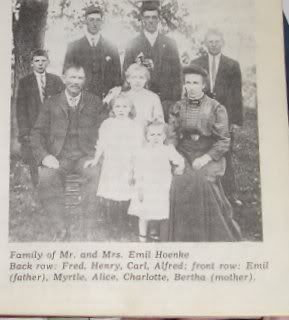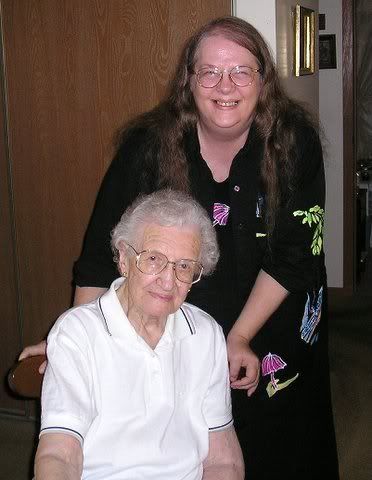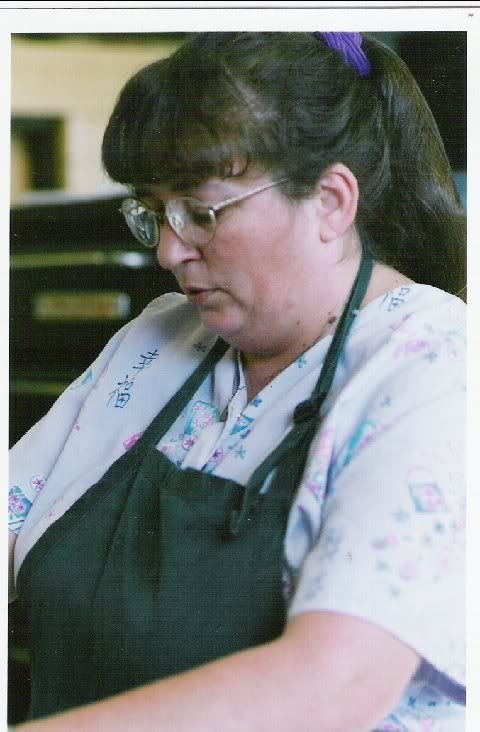Struggling ... This might have something to do about trip anxiety?




Part I: John Stuart Mill proposed a set of canons to explain the processes of inductive reasoning. Describe both the method of agreement canon and the method of difference canon and offer an instance in which each method is applicable.
Part II: Based upon the information in this unit, design a way to help college students more effectively apply deductive reasoning to the problems they face.
PAPER … 3:47 pm – 6:22 … ummm editing … 7:23
Topic: u08d3 Reasoning Date: June 10, 2006 6:33 PM
Subject: In response to assignment from Ann Author: Garvey, Ann
Last edited on: June 10, 2006 7:14 PM
John Stuart Mill proposed a set of canons that explained causal inferences, or more simply how to make judgments based on something causing something else. The method of agreement canon involves “making separate lists of the possible causes that are present and those that are absent when a given outcome occurs” (Sternberg, 2003). The one cause that fits all the variables can be deduced to be the true cause. What is being agreed is that there can be only one solution.
This could be compared to a State prosecutor explaining to the jury why the defendant is guilty as charged from what is known and unknown beyond a reasonable shadow of doubt.
The method of difference cannon is in observing the discrepancy between two phenomenons by looking at each of their circumstances (Sternberg, 2003). So in the first cannon, you state the outcome, and then analyze what could have caused the outcome from causes present and causes absent. In the second cannon, you build a case for two phenomena in comparison, until you a reach difference, which would obviously invalidate the argument.
In a courtroom, this would be the State defense attorney explaining to the jury why the prosecutor’s evidence is faulty. Together, these canons represent inductive reasoning.
For example, using the above analogy, the prosecuting attorney might say we know the defendant is guilty as charged because his fingerprints are on the gun and he was in the vicinity of the murder at the time the murder occurred. He had motive to kill the victim, because the victim had not paid back the $150,000 he was owed. While no one appears to have witnessed the crime, we can assume beyond reasonable doubt the defendant killed the victim out of rage and anger. The victim could not have killed himself, because the trajectory of the bullets indicate he had been shot by a taller man standing 5 feet away and no one beside the defendant had access to the vault, which was where the victim was found. There were no signs of struggle on the victim's body and no carpet burns, so we know the murderer knew the victim and had killed him on the spot. This is the man that killed the victim and he deserves the death penalty.
The defense attorney might say, “It is true that my client’s fingerprints were on the gun, he was in the vicinity at the time of the murder. He was angry on the night of the crime, is taller than the victim, and had access to the vault, BUT, the defendant did not kill the victim. The gun found was a Lady Smith and Wesson purchased out of state two weeks before the murder. The true killer is the victim’s tall wife who had just been out of state, but came back to murder her husband in cold blood. She had discovered tickets in the defendent's hands to Tahiti. In fact, evidence will show my client was madly in love with the victim and tried to protect him. It is a case of a dangerous woman scorned!
As to part two of the assignment, I read in the paper today a story titled, “Police Raid ‘Animal House’ Fraternity” (Saunders, 2006). The event took place at Dartmouth, an Ivy League campus, which has been trying to curb student drinking. They have also had to ban the fraternity from publishing the “sexual exploits of its members” (2006). The detectives took away from the frat house, amongst other things 10 crates and a computer (2006).
I would help the college students and the University by applying deductive reasoning over their present condition and media frenzy by suggesting: If the fraternities are known to drink and be sexually abusive then fraternities may be a bad idea. The fraternities got busted supposedly because of a 2 year investigation for drinking and sexual zealousness; therefore fraternities may be a bad idea. This is a valid argument.
But, if no one was arrested, the investigators’ might have been over-zealous. No student was arrested; therefore the investigators might have been over-zealous. This is a valid argument.
If the investigators arrest someone soon, then the powerful alumni might get angrier. The investigators haven’t arrested anyone; therefore the alumni won’t be madder. This is a valid argument, but unlikely.
If the college is funded by fraternity alumni members then the school may lose financial support. The school has not been reported to lose financial support therefore the University is being funded by the alumni members. This is a valid argument, and there is yet no proof contrary.
The school seems to think if they stop the fraternity reputation of partying then they will lose financial support. They have not stopped the fraternities’ reputation; therefore they will not lose financial support. This is not a valid argument. But, might lead us to believe, it is time they look for support that funds a healthier program, because likely the parents and alumni are going to be mad.
The media seems to belief if this is the school famed to have originated the movie “Animal House” with James Belushi, then it is possible the students and school are incorrigible. An alumni member from this fraternity did write the screenplay for Animal House; therefore the students and the University are incorrigible. This is a valid argument, though it doesn’t prove its case.
The attorney’s for the kids stated that the raid was “a major interruption.” If the students were partying at that time, then there was a major interruption. If there was no indication in the article that at the time of the raid the students were drinking or causing sexual crimes; chances are there was not a major interruption. This is a valid argument, however, the students were preparing for the arrival of their parents and graduation.
This may prove out to have been a poor idea on behalf of the police and investigators.
If this is an Ivy League University, then most likely someone will be suing for emotional damage. This IS an Ivy League University; therefore good luck to the investigators.
Message to the students on deductive reasoning? Odds are in your favor. But, if you continue to drink and debauch then attain a good set of lawyers. The lawyers do seem to be on top of clients' rights; therefore don't worry about your drinking and debauchery. But, this would be an invalid argument. You will eventually lose. Take heed in the warning given by the police and investigators.
References
Saunders, A. (2006, June 9). Police raid ‘animal house’ fraternity. AOL News. Retrieved June 10, 2006, from http://articles.news.aol.com/news/article.adp?id=20060609153409990010
Sternberg, R. J. (2003). Cognitive Psychology (3rd ed.). Belmont, CA: Wadsworth/Thomson Learning.
End Paper …
Ok V. It is us … now on to the next part … We need to do one journal and six posts. The time is 7:30. So total time on the last assignment 3 hours and 15 minutes.
Ok, we’ll try to time each of these next and improve our time each time. Really want chapter 8 done before bed. We’ll need to pack in the morning.
Whimpering 4 comments 45 minutes. 1 comment 4 hours 15 minutes. Better go to bed … Maybe we can talk to V about this in the morning. Coffee and stress might not be good for me. Seems we’re still thinking Dr. M’s good and bad catastrophising. And somehow winning and losing over good and bad (evil) in ourselves takes precedence over reason. With the postal “story,” we couldn’t stop until we had a sense of having some safety in our well-being. We remained into the night fearful. But, am now scared of our deadline to leave at 7:30 after having stayed up til 12:42 working through the problem. It seems at all cost … we need to fix things to be safe. The more things that need fixing the more desparate our need becomes, until we are unable to fix the most basic and relevant problem. We become overwhelmed. Some of this might have something to do with being unable to control our environment and/or our grandfather. It’s better we figure this out???
Need to go to bed. Remember took both medicines late tonight. All considering we had been unable to write this morning because we were over-focused on getting out the books (fear we need to shut down this computer, drive, and getting to the hotel where we need the computer to miraculously work). We then needed to get the books out because we didn’t know if we were going to die in between here and there.
Rich did call tonight earlier about 7:15. He was somewhat focused on us and doing trip safely … at least noticed we were going to be on the road, but more focused on an argument that happened at his card/fishing game and in having won first place again. Vince has been sick, but on and off line again. He helped us though get started with tonight’s work. Dr. M has been gone in our head with the exception of the postal person. He came back to help us be quiet and help get past her anger. The voice on the machine telling us to turn left and right was extremely reassuring. When we got to each corner or our destination, she would hit a comforting “good girl” tone on her xylophone, but for some reason we were pretty sure it was a guy that was hitting the note. Most likely because the note was low and understated.
Paper... comment
Topic: u08d1 Journaling Date: June 11, 2006 12:13 AM
Subject: In response to xxx from Ann Author: Garvey, Ann
Last edited on: June 11, 2006 1:01 AM
I'm sorry to be responding so late to your post back at mile-marker 8. I was drawn to your example in that our parts (being a multiple) have worked very hard on concepts of good and bad, and we find a discrepancy from our thoughts to your example. I'm going to take a chance here, we are all ok with some disability. It has been very easy for us based on poor youth experiences, to conceptualize ourselves as good or bad in relationship to our choices or our behavior, as being good or bad. Or, with minimal damage done in having been taught that good choices equate with good consequences and bad choices equate with bad consequences.
We'll go to an extreme here in saying sometimes people make mistakes and get lucky in that, although it is not a good reason to systematically make bad choices, it's ok to make mistakes. I think you have better odds at good consequences when good choices are made, but in relating to the unexpected world, particularly in the social world, there are no sure fire guarantees as to making "good" choices, not all mistakes need to be corrected, and in general, it's a good idea to take up the practice of living with mistakes.
Bad decisions do not necessarily mean bad consequences and sometimes good decisions do not necessarily mean good consequences.
For example, we've had longstanding problems getting to the post office over the years, because of our tendency to be fearful of getting lost even locally, and in finding postal people too difficult - as goes the cliché - due to them "going postal." I am not saying this has been logical thinking, but it had followed our "system of logic," which has been going on for most of our years.
Yesterday, we were feeling confident and dared to extend ourselves past our obsessive fears and in remarkable "good turn" was honored with an excellent outing and postal experience. We found the location AND met a postal employee with a great attitude. It had been a "good decision" to go out and the experience had led to a "good consequence."
The decision we then made today in going back to the post office was "even better" and based in our new logic that post offices were not "really dangerous" to our well-being. But, today the good decision to "do the post office" did not yield to the "good consequences" This time, we ran into a nutty postal worker.
We had picked up padded envelopes to address our outgoing mail, and in the process we found an envelope someone had written on, but had placed back in the good envelope rack to be sold. "Us" with our sometimes younger personality good "Girl Scout ethics" brought the ruined envelope to the postal employee, thinking good us … this is a good deed done. However, the postal employee in no uncertain terms accused us of having written on the $1.37 envelope and told us we would need to pay for it. But, to pay the envelope would be like an admission that we had wrecked the envelope, and we hadn't. We had found it that way.
After insisting we pay for the envelope and stating several times over that the scarred envelope was in our handwriting, she then turned to a peer who had just come by and to our horror and shock "told on us" as if she had the proof she needed to prove we were a postal patron coming directly from not only vandalism "hell," but that we had lied about our atrocity, or so it had seemed in relation to us at the time and in our terrified outside world fears and phobias. More desparately we now claimed again, we had not wrecked her envelope. She one-upped the anti by turning to us and stating loudly for the other patrons to hear, she wasn't talking to us. The inference she made was that it was acceptable to talk about us in front of us, but no longer to us. We were now invisible. We did everything we could to remain calm and not burst into tears.
We finally recalled our good therapy and closed down our attempts to communicate with the postal person. We remained though regressed and silent as she overcharged our packages and then threw them angrily from one counter to another. This was not going to be a battle we could win directly.
The point being here being, other than it is obviously too late for us to be up, especially when still obviously distressed, most simply - good decisions made do not necessarily yield to good consequences. Just because one choice to be out in the external postal environment was "good" one day, doesn't mean that it will be "good" all days. If p = good choice to go out on postal outing then q = good consequence. Existing condition being that q did not = good consequence; therefore it was a bad choice to go out on the outing. This inference would be logically valid. But, most likely … we're going to need try again.
Paper end...
Ok, ok … we really have to go to bed now don’t we. C’ept we need to post, cuz V is sure to be up before us and will need to help. It didn’t help this week that because V was sick he stopped reading our Master’s posts. Think he is backed up at least 8 by now. Somehow our world feels safer knowing that he has read the posts. SHHHH stop thinking … it’s going to be ok … just post. Dr. M. says that when we’re catastrophising, we don’t check things out as we need to … like he doesn’t really hate us. So, we went back and checked V’s posting. He really is only one behind from tonight. He somehow caught up and we didn’t know it. Ok girls. We need to close down! Shut down the school windows. Shut down the IM windows.
Paper ... Comment
Topic: u08d1 Journaling Date: June 11, 2006 12:13 AM
Subject: In response to XXX from Ann Author: Garvey, Ann
Last edited on: June 11, 2006 1:01 AM
I'm sorry to be responding so late to your post back at mile-marker 8. I was drawn to your example in that our parts (being a multiple) have worked very hard on concepts of good and bad, and we find a discrepancy from our thoughts to your example. I'm going to take a chance here, we are all ok with some disability. It has been very easy for us based on poor youth experiences, to conceptualize ourselves as good or bad in relationship to our choices or our behavior, as being good or bad. Or, with minimal damage done in having been taught that good choices equate with good consequences and bad choices equate with bad consequences.
We'll go to an extreme here in saying sometimes people make mistakes and get lucky in that, although it is not a good reason to systematically make bad choices, it's ok to make mistakes. I think you have better odds at good consequences when good choices are made, but in relating to the unexpected world, particularly in the social world, there are no sure fire guarantees as to making "good" choices, not all mistakes need to be corrected, and in general, it's a good idea to take up the practice of living with mistakes.
Bad decisions do not necessarily mean bad consequences and sometimes good decisions do not necessarily mean good consequences.
For example, we've had longstanding problems getting to the post office over the years, because of our tendency to be fearful of getting lost even locally, and in finding postal people too difficult - as goes the cliché - due to them "going postal." I am not saying this has been logical thinking, but it had followed our "system of logic," which has been going on for most of our years.
Yesterday, we were feeling confident and dared to extend ourselves past our obsessive fears and in remarkable "good turn" was honored with an excellent outing and postal experience. We found the location AND met a postal employee with a great attitude. It had been a "good decision" to go out and the experience had led to a "good consequence."
The decision we then made today in going back to the post office was "even better" and based in our new logic that post offices were not "really dangerous" to our well-being. But, today the good decision to "do the post office" did not yield to the "good consequences" This time, we ran into a nutty postal worker.
We had picked up padded envelopes to address our outgoing mail, and in the process we found an envelope someone had written on, but had placed back in the good envelope rack to be sold. "Us" with our sometimes younger personality good "Girl Scout ethics" brought the ruined envelope to the postal employee, thinking good us … this is a good deed done. However, the postal employee in no uncertain terms accused us of having written on the $1.37 envelope and told us we would need to pay for it. But, to pay the envelope would be like an admission that we had wrecked the envelope, and we hadn't. We had found it that way.
After insisting we pay for the envelope and stating several times over that the scarred envelope was in our handwriting, she then turned to a peer who had just come by and to our horror and shock "told on us" as if she had the proof she needed to prove we were a postal patron coming directly from not only vandalism "hell," but that we had lied about our atrocity, or so it had seemed in relation to us at the time and in our terrified outside world fears and phobias. More desparately we now claimed again, we had not wrecked her envelope. She one-upped the anti by turning to us and stating loudly for the other patrons to hear, she wasn't talking to us. The inference she made was that it was acceptable to talk about us in front of us, but no longer to us. We were now invisible. We did everything we could to remain calm and not burst into tears.
We finally recalled our good therapy and closed down our attempts to communicate with the postal person. We remained though regressed and silent as she overcharged our packages and then threw them angrily from one counter to another. This was not going to be a battle we could win directly.
The point being here being, other than it is obviously too late for us to be up, especially when still obviously distressed, most simply - good decisions made do not necessarily yield to good consequences. Just because one choice to be out in the external postal environment was "good" one day, doesn't mean that it will be "good" all days. If p = good choice to go out on postal outing then q = good consequence. Existing condition being that q did not = good consequence; therefore it was a bad choice to go out on the outing. This inference would be logically valid. But, most likely … we're going to need try again.
End Paper ...
 C’mon you can do this. Especially cuz Chief is now up asking what happened to us … It’s 1:15 am.
C’mon you can do this. Especially cuz Chief is now up asking what happened to us … It’s 1:15 am.Shoot forgot we wrote this too ... helps us understand that long time span ... this was a part of 4 hours and 15 min. But, now it is 2 am and we're still up ... Please let us go to bed this time, K???
Journal
Topic: u08d1 Journaling Date: June 10, 2006 10:08 PM
Subject: In response to the journal assignment from Ann Author: Garvey, Ann
Last edited on: June 10, 2006 10:16 PM
The most important thing I have learned about decision-making and reasoning is that when given a direct opportunity to do so it seems to be challenging, but not out of my league. I worked much harder in trying to understand what I was reading than I would have liked, although after I understood it, it obviously seemed very easy. I still have to follow the book to be able to do the "math" logic as in the example of the second paper where we were looking at the college students. Doing the example gave me an opportunity to put the theory into practice. I had started the paper thinking I would use the formulas once or twice, but by the end of the paper, I had discovered that I could use the reasoning methods throughout. That was pretty cool. The really neat part was that I had picked up through reading that even though the statement was logical, it did not prove out facts. This helped me distinguish more of what made sense. For example, at the conclusion of my paper, I had made a solid argument that I really hadn't thought of previous to the assignment. I knew for certain that the police most likely shook up the campus prior to the students leaving more than likely out of principle than sound reasoning of "capturing criminals." More than likely the kids had been doing things wrong, but if they could have been arrested, they would have, so our thinking was they shouldn't have messed with them, or the powers to be unless purely a lessen on flexing muscles . This gave me a whole new sense of confidence in having come to this kind of thinking backed by logic. AHA we can do this too!
As to an impact educationally, I would like to learn more of fallacies. I have purchased a couple of books previously on critical thinking, but I have not given much time to the task of learning the materials. I also have purchased books by Mortimer Adler on the Great Books of Western Civilization. The books were purchased a decade ago, and I've looked at them lovingly throughout this time thinking that when I retire, I will follow the suggested course of learning and learn to read logic. Professionally, we try our best to be logical as much as we can. That's not easy considering we're a "we." I have to work hard at keeping a united front, because I think the most important thing we can do for the clients served is to show logical consistency. It is the same thing over and over again. For example, if a client is angry, we advocate to talk about the problem, and after regaining self control and better understanding to then let it go. Or, if one is getting overly mushy, we advocate mainly hands above the table. This might seem a little silly, but the logic behind each rule is well thought out and the consistency used throughout means the material has a chance of being learned and reinforced. The results are pretty spectacular.
The specific part that I will take from this additional learning is to ask good "If-then" statements. I think I have a specialty of "what-if." For example, "what if I were to start yelling at you? Would you be upset? What if you were the staff? What would you tell me?" Or, "What if Sr. Tess took your boyfriend?" It makes them stop for a second, before catching the twinkle in our eye. Seems like when we get over a certain amount of tension, they are much more willing to let go the anger they sometimes bring into the office and talk it through. I could imagine now saying, "If Catherine wanted to go swimming then you would want to go swimming. But, Catherine's Mom won't let her go. Will you go?Or, perhaps to the staff during staff training I could state, "If Karen is acting out an auditory delusion then Ronald will be nervous and pace. Karen did start to laugh out loud due to no apparent cause. Therefore, as a form of group maintenance, did you note Ronald showing signs of agitation? I think the most interesting part for future study will be if I could teach to either clients or staff, the "trick" of conditional reasoning. That is when I know if I've really learned the material … if I can put it into practice. I have the belief that people with developmental disabilities can learn almost any truth broken down in simple elements and with good examples.
















